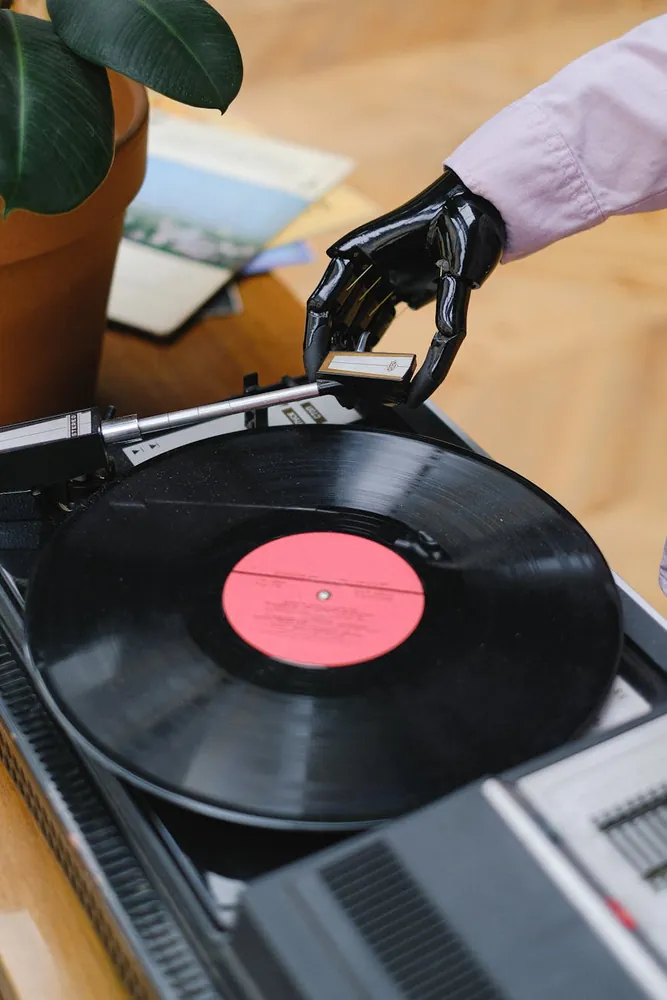Exploring the Benefits and Challenges of AI-Generated Music

AI in the Music Industry: A Revolutionary Shift
Artificial Intelligence (AI) is no longer a futuristic concept confined to science fiction; it's an integral part of today's music industry. From streamlining music production processes to creating compositions that challenge our understanding of creativity, AI's role is expanding rapidly. This article explores how AI-generated music is reshaping the landscape, offering both exciting opportunities and formidable challenges.
The Democratization of Music Production
One of the most significant impacts of AI in music is its potential to democratize music production. With AI tools, individuals without formal music education or access to expensive equipment can produce music. Platforms like AIVA and Amper Music enable users to compose music by selecting genres, instruments, and moods, leaving the rest to sophisticated algorithms.
This accessibility means that diverse voices, previously underrepresented due to socio-economic barriers, can now contribute to the global music scene. Imagine a budding composer in rural India who, through an internet connection and AI tools, can produce symphonies without needing a physical orchestra or studio. This kind of access could lead to a more vibrant and varied musical landscape.
Case Study: The Rise of Bedroom Producers
Consider the case of Jane Doe, a 19-year-old from a small town in Canada. With no formal training but a passion for electronic music, she began using AI tools to create tracks in her bedroom. Within a year, one of her songs went viral on YouTube, catching the attention of several indie labels. Today, she collaborates with artists worldwide and credits AI for breaking down barriers that traditionally impeded her creative journey.
Enhancing Creativity or Stifling Originality?
The question of whether AI enhances or stifles creativity is at the heart of the debate over AI-generated music. Proponents argue that AI serves as a tool that amplifies human creativity by handling routine tasks, allowing musicians to focus on innovative aspects. For instance, AI can generate melody variations, which artists can then adapt and evolve into unique compositions.
However, critics worry about the homogenization of music. They argue that reliance on algorithmically generated patterns may lead to works that lack the nuanced emotional depth that human composers bring to their art. There's also a concern about originality—how can we ensure that what is created by AI isn't just a rehashing of pre-existing compositions?
Practical Tips for Balancing AI and Human Input
- Leverage AI for Inspiration: Use AI-generated melodies as starting points rather than finished products. This can spark new ideas while ensuring the final piece retains personal touches.
- Maintain a Human Touch: Incorporate traditional instruments or vocals recorded by human musicians to add authenticity and emotion.
- Customize Algorithms: Many AI tools allow users to adjust parameters extensively. Tweak these settings to introduce variability and personal flair.
Challenges in Intellectual Property and Ownership
The use of AI in music production raises complex questions about intellectual property (IP) rights. Who owns a song if an algorithm composed it? Is it the person who instructed the AI, the developers who created the software, or both?
In 2021, a precedent was set when an AI-generated piece was recognized under copyright law, attributing ownership to the person who initiated the creative process using the AI tool. However, this area remains legally ambiguous, with ongoing debates likely to continue shaping IP law around AI-created art.
Navigating Legal Complexities
- Consult Legal Experts: Musicians and producers should seek legal advice when releasing AI-generated works to understand potential liabilities and rights.
- Stay Informed: Keep up with changes in copyright laws related to AI as they develop.
- Consider Licensing Agreements: Engage in agreements with software developers where necessary, especially for commercial use.
The Role of AI in Live Performances
Beyond composition and production, AI is making its way into live performances. Artists like Holly Herndon have used AI as a virtual band member, allowing for dynamic interaction during shows. Herndon’s “Spawn,” an AI trained on her voice, offers a glimpse into how performers might collaborate with technology on stage.
AI also enables more interactive concerts where audience feedback can influence live music composition in real-time. This opens up possibilities for personalized experiences unlike any traditional concert format.
Integrating AI into Your Live Set
- Experiment with AI Instruments: Utilize software that mimics instruments through AI for parts of your set, enhancing diversity without needing additional musicians.
- Create Interactive Experiences: Develop apps or interfaces that allow audiences to affect soundscapes during performances.
Conclusion: Striking a Harmonious Balance
The advent of AI-generated music presents both opportunities and challenges that are reshaping our understanding of creativity in profound ways. By embracing these technologies responsibly and thoughtfully, musicians can harness AI's power to innovate while ensuring human artistry remains at the heart of their creations.
Ultimately, finding the balance between technological advancement and artistic integrity will define how successful we are in integrating AI into the music industry. As we navigate this frontier, it’s crucial to remember that technology should enhance human potential, not replace it.
